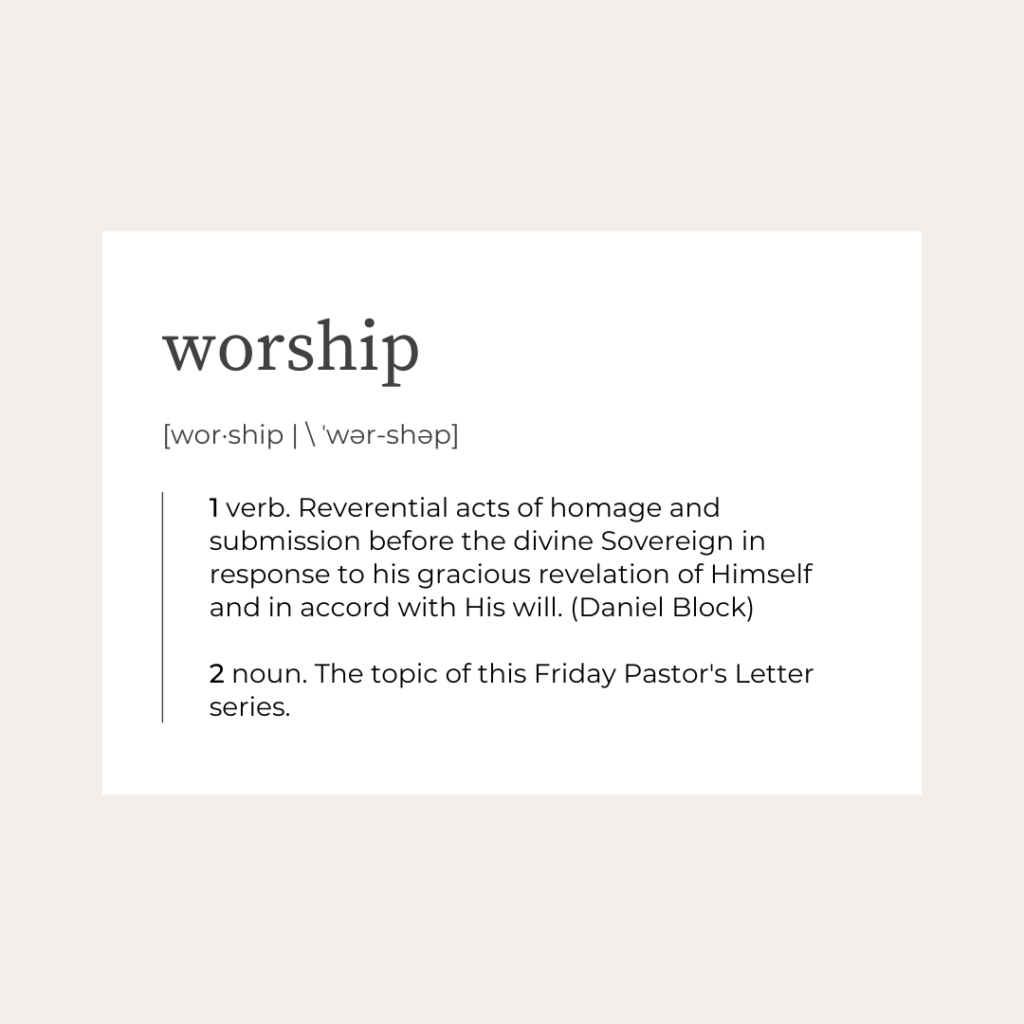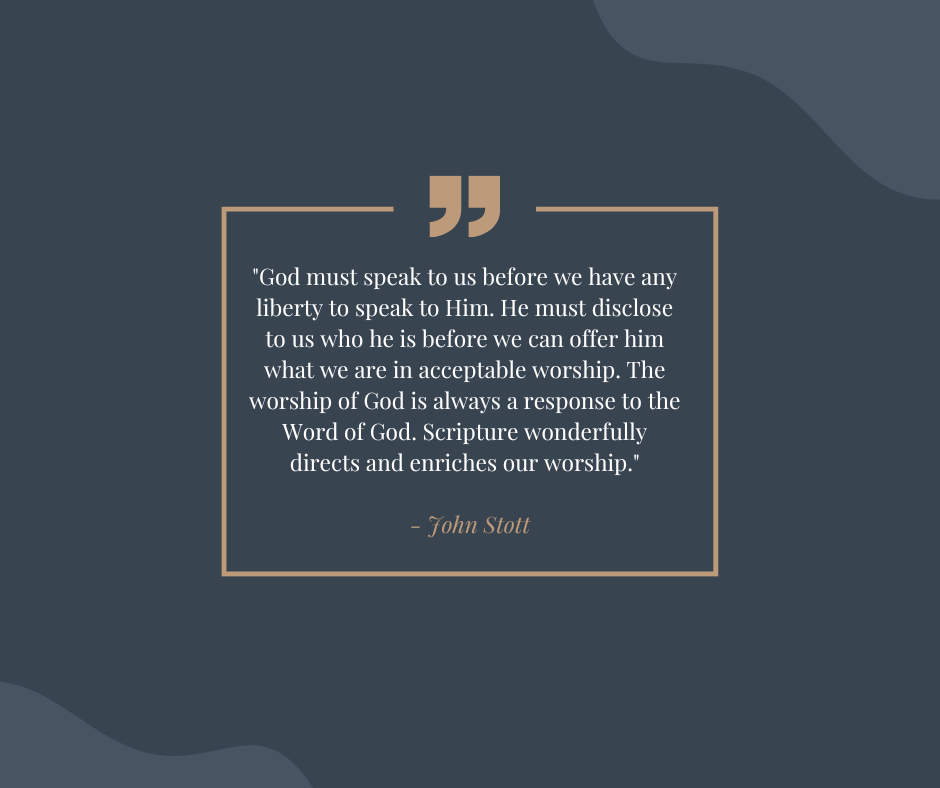
This is our fifth and final installment in a series on “worship.” Previous posts answer: Who do Christians worship?, Why do Christians worship?, When do Christians worship?, and Where do Christians worship? Today, we answer the question “How do Christians worship?”
Some churches partake of Communion every Sunday, read from a lectionary, and never touch a musical instrument in worship. Some churches preach fifteen-minute messages, take prayer requests from the congregation, and love a good light show and fog machine.
Which is right?
How we worship matters to God. (See Exodus, Leviticus, etc.) How we approach the Lord matters. In answering this question, we specifically speak of the corporate gathering of the Lord’s people on the Lord’s Day. How do Christians worship?
There are two main answers to this question. The “regulative principle” cites the specific guidelines of Scripture as the one guide (and only guide) for corporate worship. Reformed congregations generally hold to this. The Anabaptists (adherents of a “believer’s baptism”) and other groups sprouting up from the Reformation articulated the regulative principles. John Calvin wrote, “God disapproves of all modes of worship not expressly sanctioned by his Word.” A proponent would cite certain Bible passages. In Exodus 25:40, God said, See that you make (tabernacle lampstands) after the pattern for them, which was shown to you on the mountain. Jesus rejected the worship of the Pharisees, fashioned after the tradition of the elders (Matthew 15:1-14). The offerings of Cain and Abel indicate God only accepts particular kinds of worship; Nadab and Abihu underscore the point.
The “normative principle” is a second way to answer the question. The normative principle maintains that whatever the Scriptures do not forbid is permitted. Martin Luther, also a reformer, took this view. Though splitting with significant Catholic theology, he hoped to keep as much from Catholicism he could. (Both Catholicism and other Christian denominations may appear to fall into the regulative principle, but they actually land under the normative principle. Traditions and practices can be what is familiar, not what is Scriptural.) A proponent would cite Matthew 7:1—Do not judge so that you will not be judged—meaning, worship without disobeying the Bible should not be judged. First Corinthians 9:22-23—I have become all things to all men, so that I may by all means save some. I do all things for the sake of the gospel, so that I may become a fellow partaker of it.
Both principles have their pros and cons. With the regulative principle, corporate worship will be protected from worldly influences. However, it could be become legalistic and strained. With the normative principle, cultural differences may be embraced though the risk of becoming man-centered increases. Most commendable, from both principles, is their focus on Scripture. The Bible must be our authority when deciding how to worship.
At Immanuel, we worship according to a mild blend of these principles. I say “mild” because we worship mostly by the regulative principle, with some normative aspects mixed in. For example, you can read through the “order of service” in the bulletin and find a Bible passage for most events: worship in song (Colossians 3:16), corporate prayer (1 Timothy 2:1-8), public reading of Scripture (1 Timothy 4:13), and the preaching of God’s Word (2 Timothy 4:1-2). However, you won’t find a passage for announcements, the use of a projector, or most musical instruments we enjoy. We do look to the specific guidelines of Scripture, yet consider what God does not forbid.
In conclusion, we know the Bible needs to be our authority in considering how we worship. Yet, one additional element that has not yet been mentioned is our hearts—or our motives. When deciding “how to worship” we should also weigh “why we worship.” The Lord cares deeply about the heart motive of His people. It is possible to excel as worshippers using the regulative or normative principle, but yet offer up something completely unacceptable to God. “This people honors Me with their lips, but their heart is far away from Me. But in vain do they worship Me…” (Matthew 15:8-9). How we worship matters. How our hearts come into His assembly, perhaps most of all.
I trust this series has been helpful in your understanding of worship. You were made for it! May your walk with Christ and your days that remain be filled with worship.


